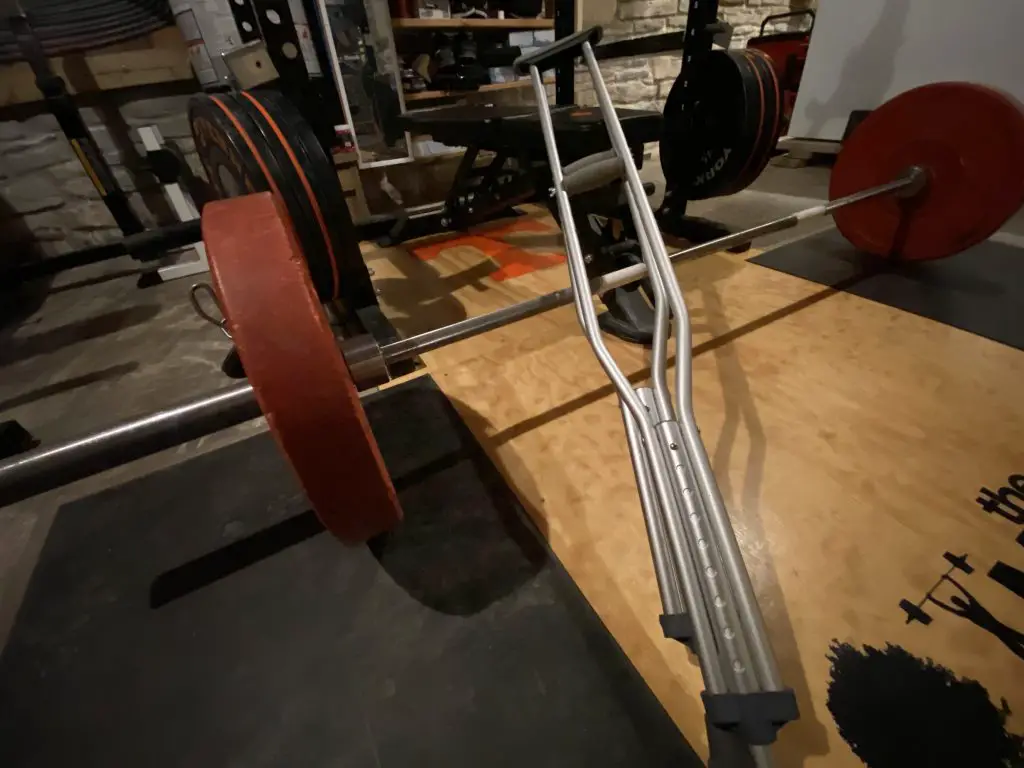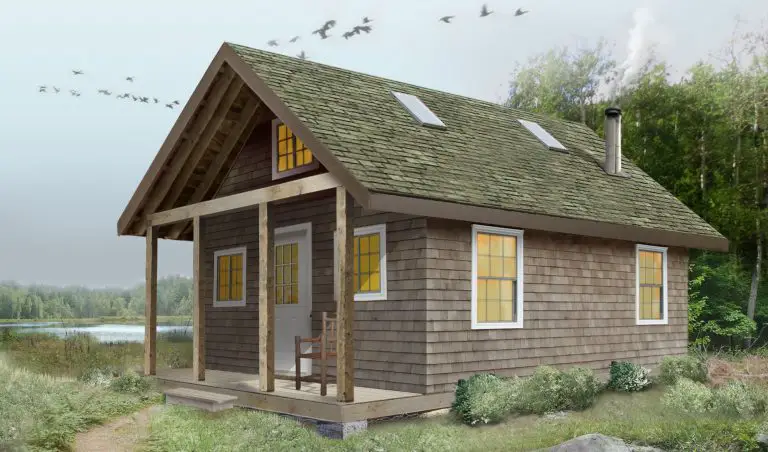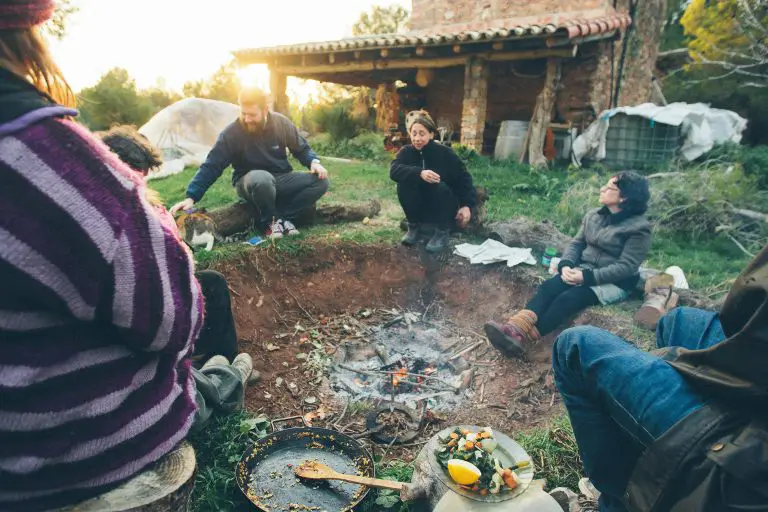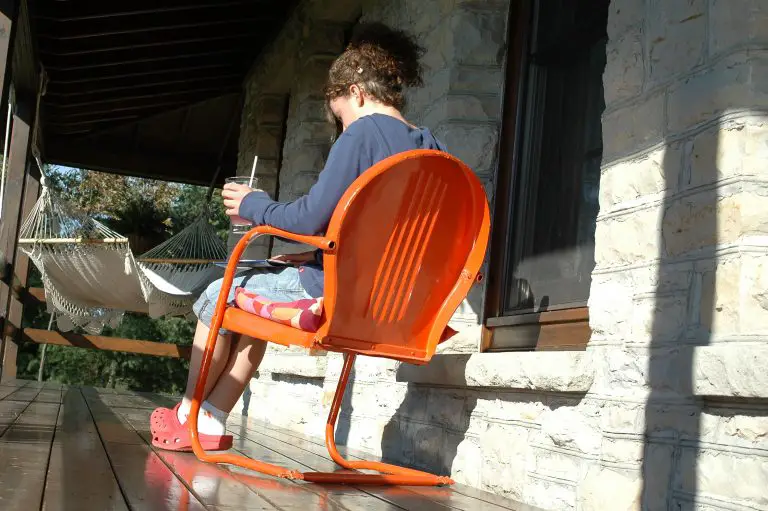
Everyone has weaknesses, some physical, some intellectual, some emotional. What matters is how you deal with them. I submit that there are two ways of dealing with personal weaknesses of all kinds, one healthy and difficult, the other easier and not so healthy. Which one you apply to your life determines whether you grow as a person or shrink over time.
An Old-Fashioned Idea
As you might expect, the approach that makes you grow is falling out of favour these days, but there’s something else to keep in mind. Perhaps you’ve noticed it. People rarely stay the same as they age. They either get better as a person or worse. And it seems to me that part of being a “getting-better-person” comes down to how personal weaknesses are handled. Let me offer an analogy that I call the “crutch or barbell”.
Imagine for a moment that you break your leg. Weeks in a cast allowed the bone to heal, but it also means that your leg muscles have wasted away to nearly nothing. You can’t walk properly, and the leg is even visually smaller than the other one. What needs to happen now? Well, the healthy thing to do is to start using that weak leg again, including regular physiotherapy exercises each day. You might eventually start using exercise weights. This will hurt – perhaps quite a lot at first – but it’s also the only way you’ll get your leg back to the way it should be.
Crutch Living
But let’s say you’ve got a doctor who believes in comfort and ease in all things. No responsible medical professional would recommend the example I’m about to give, but I offer it to make a point.
Doctor: “Well, now that your cast is off, I can see you’re in pain every time you use that leg. It’s not really safe for you to use it in any way. You could fall. Please don’t move out of your comfort zone with that leg. Maintaining your comfort is paramount. What you need to do is to go easy on that leg. Let pain avoidance be your guide. Here’s a crutch. I want you to use it all the time and forever, and I want you to avoid anything that makes your leg hurt.”
Is the crutch option more pleasant and “compassionate”? Yes, definitely, more pleasant, at least at first. It’s always easier to have help, support and a “safe space”. Sit on the couch, keep that leg from work, avoid pain. This is what it looks like to stay in your comfort zone, but what will your life look like a month from now? A year? Ten years? Your leg won’t get better, you’ll just develop a dependency on that crutch, and perhaps the people around you will need to tie your shoes, carry you around, or put your socks on. Eventually you’ll lose any hope of using that leg again. My analogy here is simple and physical, but the crutch living mentality is common with personality issues, too. This is where it can do a lot of damage.
Barbell Living
But let’s look at an alternative scenario. Your doctor refers you to a physiotherapist who gives you exercises to do at home. These hurt and seem pointless at first. “This is never going to help!” is what feels true to you at the time. “These moves are really painful. I might do permanent damage.” These are the false thoughts that naturally run around in your head, but thoughts alone can be quite deceiving. They certainly are in this case. If you “pick up the barbell” in response to your personal weaknesses, to whatever extent possible to build strength, you’ll grow in time, not shrink.
Every chronic weakness in life – whether it’s a physical issue like a healing arm or an emotional issue like shyness or a tendency to be lazy or to entertain illogical fears or to let anger get the better of us – they all present a choice. We can either attack the weakness responsibly by incrementally challenging it and pushing the boundaries of our capabilities in order to grow – this is the “barbell” approach – or we can shrink from the weakness, make excuses, and let the weakness drive the bus of our lives, letting that weakness grow. This is the comfort of the “permanent crutch”.
As usual in life, doing the hard thing is also doing the better thing. And by “better” I mean something that puts us on the track to improvement, not degeneration. Once upon a time our culture was sloped in the direction of the barbell. Not in everything, of course, but in many things. This certainly was true when I was growing up. But for reasons that are worth talking about sometime, the culture now is definitely sloped heavily towards the crutch, towards making things easier and more comfortable and “safer” instead of facing the challenges of life undiluted and dealing with them in strength developed in response
I see the accommodation of weakness most obviously in schools, but it’s everywhere. My kids tell me that automatic spelling correction when writing on a computer is encouraged in elementary schools, instead of the hard work of learning to actually spell. The result? High schools where I live have opted to make top-level courses easier (“destreamed” they call it), to accommodate entire grade levels of academically weak young people who cannot meet minimum standards that have existed for decades.
A recent literacy test at my local high school allowed academically weak students to use “scribes” – adults who would write the answers for the students during tests. Getting “close” in math is often sufficient to get full marks these days, too. The result? When my daughter was in grade 8 not a single child in her class could multiply numbers (except my daughter). Few can string coherent sentences together, especially on paper. Bullied children are encouraged to remain victims by “leaving the issue to the authorities” instead of getting stronger and standing up for themselves and becoming bully-proof. The result? Bullies run wild in schools like I’ve never seen – a prime example of the paradox of being kind and supportive actually resulting in a cruel outcome. One particular story comes to mind . . .
In one of my kids’ grade level there was a boy who regular lashed out violently, both with students and teachers. The school board assigned a full-time worker to sit with this serial bully during every day at class (think of the cost) and help in learn to control his anger. This went on for years with no improvement. One day, this boy messed with the wrong students, and they let him know it. Nothing serious was done, but it was enough. This boy never bullied anyone again. Ever. A slightly different situation, but related.
Choose Easy or Hard
The crutch or the barbell – it’s your daily choice – and one that has a powerful influence, not so much in the immediate term, but certainly in the long term. Is this old-school thinking? Some might call it that. I prefer to call it “timeless and true”.












